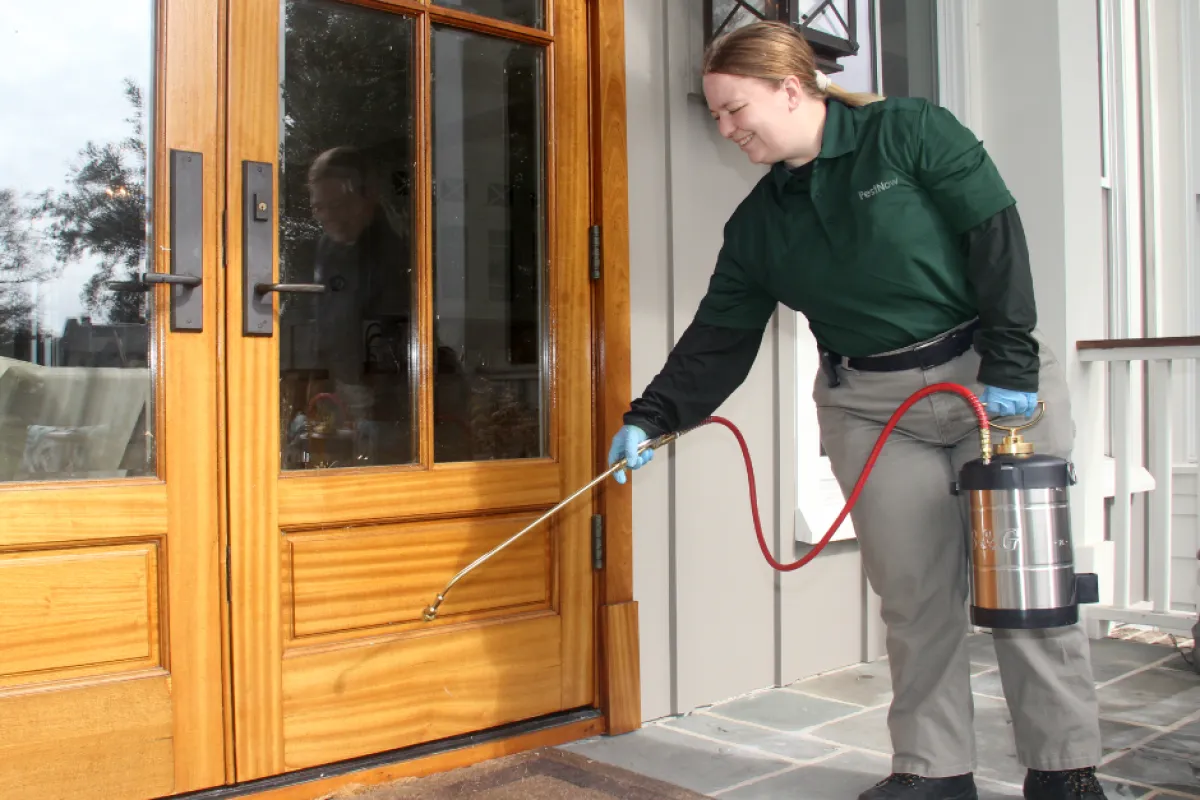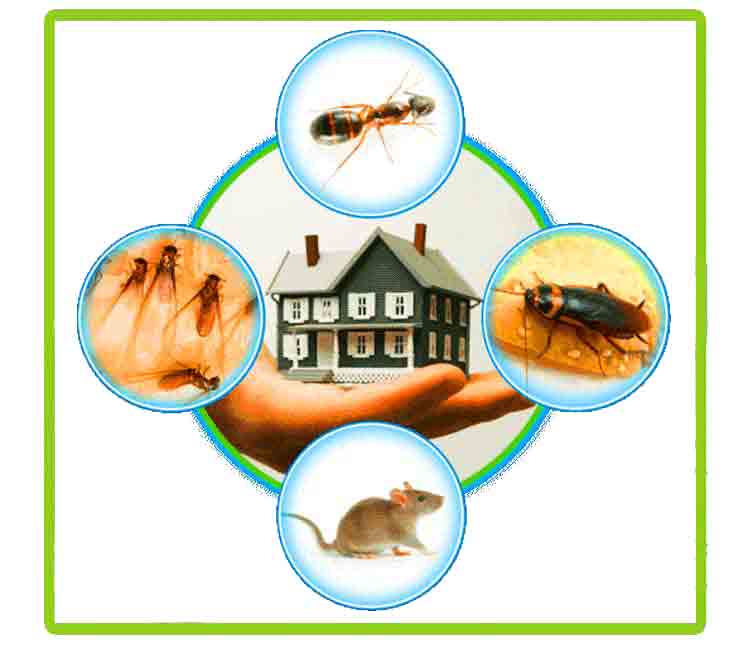Safe and Reputable Parasite Control for Lasting Defense
The importance of secure and dependable insect control can not be overemphasized, especially in an age where environmental worries are vital. Efficient pest monitoring calls for a diverse approach that stabilizes eco-friendly honesty with the requirement for efficient bug suppression. By discovering green services and integrated pest administration methods, homeowners can accomplish enduring protection against intrusive types while safeguarding useful environments. Nonetheless, the nuances of these approaches might not be promptly clear, prompting a closer examination of the techniques that can bring about sustainable pest control results. What steps can be required to make certain both safety and security and efficacy in insect monitoring?
Comprehending Pest Control Approaches
Pest control incorporates a variety of techniques targeted at managing and eradicating unwanted bugs and rodents that can threaten both wellness and residential property. Comprehending these approaches is vital for reliable parasite administration.
The key categories of pest control methods include mechanical, organic, and chemical strategies. Mechanical techniques involve physical barriers and catches to stop parasite entry and capture undesirable varieties. Utilizing displays on home windows or utilizing sticky catches can considerably decrease pest populations without presenting damaging substances - exterminator coquitlam.

Chemical parasite control is commonly the most recognized approach, making use of chemicals to get rid of insects. These chemicals can be efficient but should be made use of with care to stay clear of damaging effects on non-target types and the atmosphere.
Advantages of Eco-Friendly Solutions
Just how can eco-friendly solutions change insect control practices? The adoption of environmentally friendly parasite control techniques uses many benefits, significantly improving the performance and safety of bug administration.

One more benefit is the positive influence on regional biodiversity. Eco-friendly remedies are designed to target details parasites while protecting useful bugs and wild animals, advertising a balanced ecosystem. This strategy straightens with the expanding customer need for sustainable methods, boosting the track record of pest control suppliers.
Integrated Insect Management Techniques
The implementation of environment-friendly services normally leads to the adoption of Integrated Parasite Administration (IPM) strategies, which further boost insect control efficacy. IPM is an alternative method that incorporates several tactics to take care of insect populaces while minimizing environmental impact. This strategy emphasizes using organic, cultural, mechanical, and chemical controls, making sure a balanced and lasting method of pest monitoring.
One fundamental element of IPM is the thorough assessment of bug task and ecological problems. By checking parasite populaces and recognizing their life process, experts can apply targeted interventions that interfere with the insect's habitat or lifecycle, minimizing reliance on chemical pesticides. Furthermore, social practices such as crop rotation and environment manipulation can dramatically decrease bug facility and recreation.
An additional important element is using biological control agents, such as beneficial pests or microbes, which can naturally subdue pest populaces. When chemical applications are required, IPM focuses on making use of low-risk chemicals and uses them selectively, minimizing exposure to non-target microorganisms and human beings.
Incorporating IPM approaches not just improves bug control effectiveness however additionally promotes a safer ecological community, lining up with the expanding need for sustainable practices in parasite management.
Safe Practices for House Owners
Understanding the importance of secure methods in pest control can encourage home owners to properly manage insect problems while protecting their health and wellness and the environment. Implementing non-toxic methods and safety nets is critical in minimizing direct exposure to dangerous chemicals.
Property owners must first examine their environment for problems that draw in pests, such as standing food, mess, and water waste. Routinely cleansing and sealing entrance factors can prevent insects from invading the home. Making use of natural deterrents, such as important oils or diatomaceous earth, can offer efficient options to chemical pesticides.
When chemical treatments are needed, homeowners must choose for products that are especially classified as safe for property use. It is essential to comply with application standards thoroughly to stay clear of overexposure. In addition, making use of targeted therapies in areas where pests are identified, instead of blanket spraying, can considerably lower chemical use.
Lastly, maintaining open interaction with insect control professionals is important. Home owners should make inquiries regarding the security of products utilized and request environment-friendly options whenever possible. By embracing these risk-free practices, property owners can produce a healthier living environment while successfully handling pest issues.

Tips for Long-Term Protection
Establishing a bug monitoring technique that stresses long-term defense can considerably boost the effectiveness of the risk-free practices formerly go discussed. To achieve this, home owners ought to carry out regular assessments of their property, focusing on concealed locations such as attics, cellars, and crawl rooms. Early discovery of insect activity is important in avoiding invasions from taking hold.
These techniques minimize attractants that attract parasites into the home. Securing entrance points, such as splits around doors and home windows, can efficiently block prospective bug gain access to.
Landscaping should likewise be thought about; keeping plants cut and maintaining a distance between vegetation and the home minimizes concealing spots for pests. Making use of natural deterrents, such as essential oils or diatomaceous earth, can further dissuade infestations without considering severe chemicals.
Lastly, teaming up with a professional parasite control service for periodic evaluations can supply an extra layer of safety and security. These experts can use tailored recommendations and advanced treatments, making certain that your home continues to be protected against bugs in the long-term.
Final Thought
Finally, risk-free and reputable pest control needs a complex approach that highlights eco-friendly approaches and incorporated pest management. By applying all-natural deterrents, conducting routine assessments, and keeping proper hygiene, home owners can dramatically reduce pest populaces while protecting useful pests and the setting. Partnership with professional parasite control solutions improves the performance of these approaches, ensuring customized remedies that give long lasting defense and satisfaction against future infestations.
Effective bug monitoring calls for a multifaceted technique that balances ecological stability with the requirement for reliable parasite reductions. The fostering of environmentally friendly insect control methods provides countless advantages, substantially enhancing the efficiency and safety of insect management.The implementation of eco-friendly options naturally leads to the fostering of Integrated Parasite Monitoring (IPM) approaches, which even more boost bug control effectiveness. exterminator coquitlam. By keeping an eye on bug populaces and recognizing their life cycles, specialists can execute targeted interventions that interfere with the insect's environment or lifecycle, decreasing reliance on chemical pesticides.In conclusion, secure and trusted bug control requires a multifaceted approach that stresses eco-friendly techniques and incorporated bug management